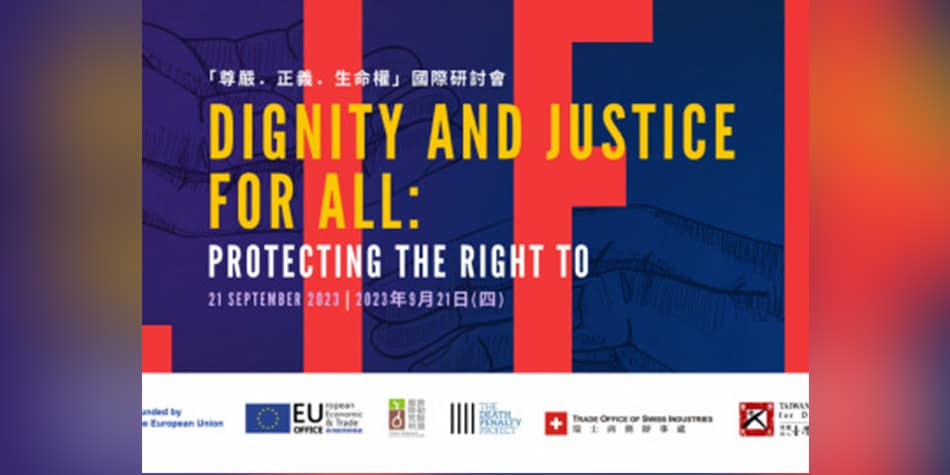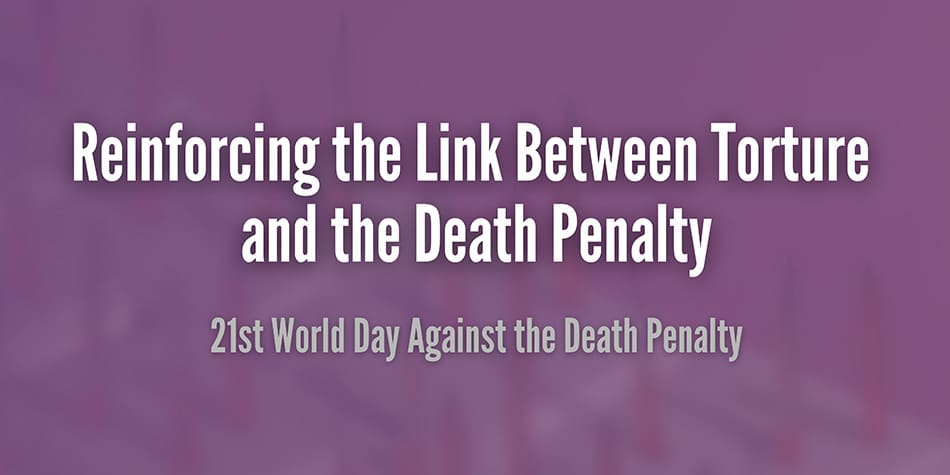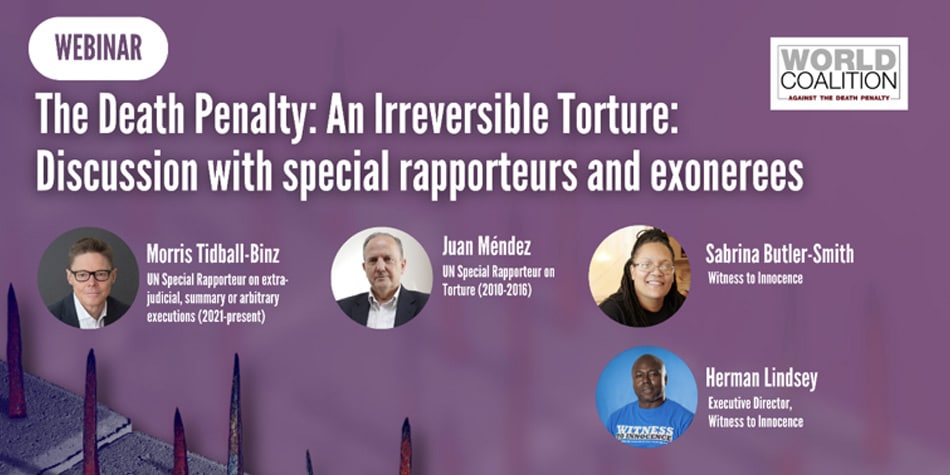Is the death penalty a cruel, inhuman or degrading punishment under international law?
International standards
The United Nations’s special rapporteur on torture and other cruel, inhuman or degrading treatment or punishment, Manfred Nowak, caused a stir at the tenth session of the UN’s Human Rights Council by releasing a report in which he recommended investigating whether the death penalty was a cruel, inhuman or degrading punishment.
“The differing views reached by the Human Rights Committee and other authorities in grappling with the question whether detention on death row and if various methods of execution are compatible with the right not to be subjected to cruel, inhuman and degrading treatment suggest the need for a different, more fundamental approach to the matter”, he wrote.
A parallel between capital and corporal punishment
His report draws a parallel with corporal punishment, deemed acceptable a few decades ago and now banned in international law.
While he acknowledged that the death penalty is not currently banned by global treaties, he suggested that a “more comprehensive legal study” be carried out to take modern interpretations of the law into account.
“I proposed to interpret the death penalty in light of the present-day understanding of ‘cruel, unusual or degrading treatment and punishment’,” he explained when he presented his report on March 12, 2009, adding that that notion “has been evolving”.
Two World Coalition member organisations with consultative status at the UN welcomed the report. In a statement on behalf of the World Coalition, the International Federation of ACATs (FIACAT) said the death penalty “should be banned in international law and opposed by all means”. It urged the Human Rights Council to go ahead with the comprehensive legal study suggested by the rapporteur (watch the video).
World Coalition members Penal Reform International, National Coalition for the Abolition of the Death Penalty, National Association of Criminal Lawyers and Murder Victims’ Families for Human Rights co-signed the statement.
In a joint statement delivered during the interactive dialogue with the rapporteur, the World Organisation Against Torture (OMCT) and FIACAT also said that the World Coalition “considers capital punishment as a form of cruel, inhuman and degrading punishment” (watch the video).
Egypt leads the critics
However, several retentionist states reacted strongly to the report. “The rapporteur had no mandate to address the death penalty”, said Egyptian delegate Amr Roshdy Hassan. He called for a vote on the death penalty section of the report.
“Such reports are usually adopted by consensus”, explained Nathalie Jeannin, FIACAT’s UN Programme officer in Geneva. “Will there be enough negotiation to achieve this, or will they ask for a formal vote? We will see on March 26 and 27.”
Beyond the plan for a legal study on the death penalty supported by the World Coalition, some abolitionist organisations would like to see the Human Rights Council address the issue of capital punishment more directly. Others think that the best forum to debate this issue is the UN General Assembly, which adopted two resolutions calling for a moratorium on executions.
March 31, 2009 update :
The Human Rights Council adopted its 10th session’s “torture” resolution on March 27 after a vote, as requested by Egypt. The text states that the members of the Council merely acknowledge Manfred Nowak’s report.
The section acknowledging the report was adopted with 27 votes in favour, 10 against and 10 abstentions. The overall resolution was adopted with 34 votes in favour and 13 against.
Click below to download the Nowak report in the language of your choice
French English Russian Spanish Chinese Arabic







